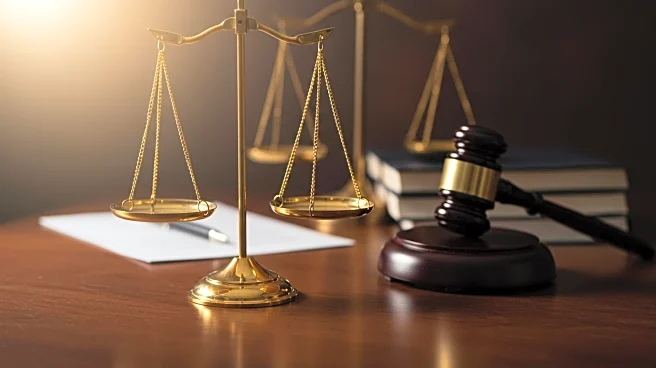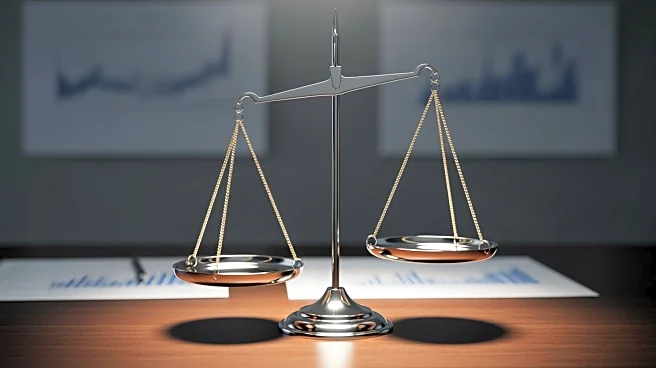What is the story about?
What's Happening?
A New York appeals court has overturned a substantial financial penalty imposed on President Trump, while upholding a finding of fraud related to exaggerating his wealth. The court's decision removes the potential half-billion-dollar fine but restricts Trump and his two eldest sons from corporate leadership roles for a few years. The ruling follows a contentious legal battle where Trump was accused of inflating his financial statements to secure favorable terms from lenders and insurers. The appeals court deemed the monetary penalty excessive, citing the Eighth Amendment, and dismissed it entirely. However, the court left open the possibility for Trump to appeal to the state's highest court, the Court of Appeals.
Why It's Important?
The court's decision is significant as it spares President Trump from a massive financial penalty, which could have had substantial implications for his business operations and political career. The ruling highlights ongoing debates about the intersection of politics and legal proceedings, with Trump and his supporters claiming the case was politically motivated. The decision also underscores the challenges in enforcing financial regulations and penalties against high-profile individuals. The outcome may influence future legal strategies and political narratives surrounding Trump's business practices and his role in public office.
What's Next?
President Trump and his co-defendants have the option to appeal the decision to the state's highest court, potentially extending the legal battle. The ruling may prompt further scrutiny of Trump's business dealings and financial disclosures, impacting his political standing and business operations. Stakeholders, including political leaders and business entities, may react to the decision, influencing public discourse and policy considerations. The case could set precedents for how similar legal challenges are approached in the future, particularly concerning penalties for financial misconduct.
Beyond the Headlines
The case raises broader questions about the role of political motivations in legal proceedings and the balance between enforcing financial regulations and respecting constitutional rights. The appeals court's decision may influence public perceptions of the judicial system's impartiality and the effectiveness of legal remedies in addressing corporate fraud. The ruling could also impact the regulatory environment for businesses, particularly those led by high-profile figures, shaping future legal and ethical standards.
















